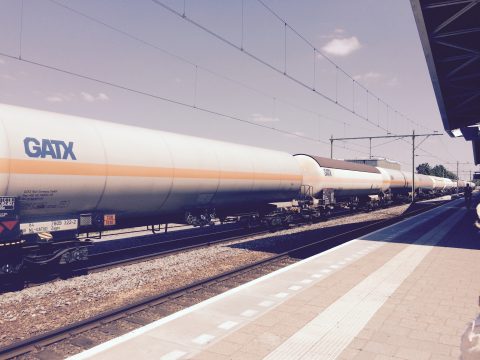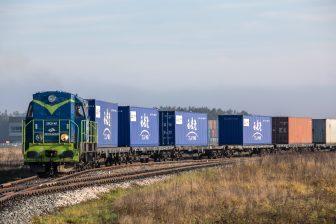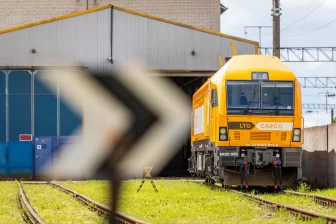
Dutch track access charges streamlined with those of neighbouring countries
The Netherlands will streamline track access charges with those of neighbouring countries, the new government announced in the coalition agreement that was presented on Tuesday, the 10th of October. Germany plans to halve its track access charges as soon as next year. The Dutch rail freight industry has urged the Dutch government to respond with similar measures for the past months.
“Railway and inland shipping can contribute significantly to a reduction of freight traffic on the road and emission that negatively affect the environment. We stimulate rail freight by streamlining track access charges with those of neighbouring countries”, the plan of the newly formed government reads.
In line with this effort, it has also announced to introduce a road transport for heavy goods vehicles. The kilometer tax has been dubbed ‘Maut’ and will inherit the registration and payment system of neighbouring countries, where the tax policy was already in place.
Radical change
Plans of the previous government indicated that track access charges would once again be increased in 2019, or at the latest in 2020, in order to cover the costs of managing and maintaining the railway. Track access charges were also increased significantly in 2015-2016, and currently amount to 2.79-2.97 Euros per kilometer for an intermodal shuttle. As a comparison, Germany currently charges 2.71 Euros per kilometer.
Although German track access charges were higher than Dutch tariffs until 2012, use of the Dutch railway is now significantly more expensive. Industry players have repeatedly criticised the high tariffs, stating they jeopardized the competitive position of the Dutch railway network. The Dutch government should provide support that is on a par with that of their European port counterparts to maintain a competitive position, the Port of Rotterdam stated earlier this year. A petition asking the government to halve track access charges instead of pushing the planned increase was initiated two weeks ago by lobby organisation RailGood.
Freight train nuisance
The new government also supports measures to reduce nuisance of freight traffic passing through densely populated areas. It stimulates the use of quieter freight trains and wants to encourage the use of the Betuweroute, which is dedicated for the traffic of rail freight trains.
With this passage, the coalition agreement replies to concerns of municipalities in the near vicinity of railway lines frequently used by freight trains. One of these concerns is the risk of trains carrying dangerous chemicals, especially on the Amersfoort-Apeldoorn (Bentheim route) and Eindhoven-Venlo (Brabant route), popular freight corridors to and from Germany. Previous Secretary of State Sharon Dijksma concluded that risk ceilings in place are exceeded too often and suggested route enforcements to the Betuweroute.
The same politician also investigated the possibility to enforce lower maximum speed limits for freight trains passing the municipalities of Zevenbergen, Oudenbosch en Roosendaal at night. These municipalities lie on the West-Brabantroute (Dordrecht-Roosendaal), an important corridor for freight traffic between the Netherlands and Belgium and accordingly, face noise nuisance from trains passing at night.





